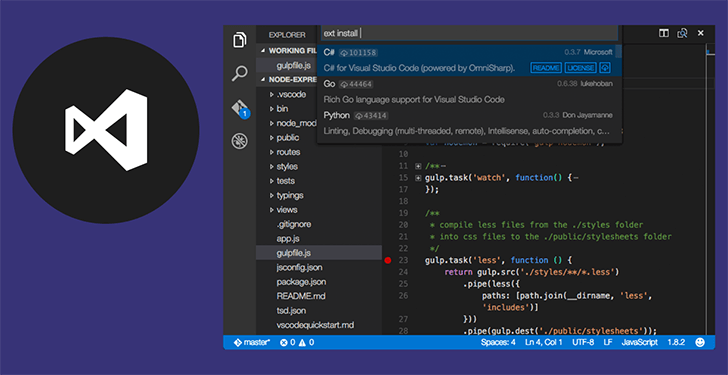Having a mobile phone is no longer a luxury in this digitally advanced world of today, it’s now more of a necessity. WIth more than 5 billion people expected to get their hands on a mobile handheld device in 2019, half of them are predicted to be smartphone users.
Also, 90% of the time spent on mobile by users is on mobile applications rather than web. All these statistics clearly show that usage of mobile applications will only rise with each passing day. So, it’s no longer a case of wondering if you need a mobile application for your business….. you definitely do!
Maintaining your presence through mobile apps becomes all the more important to maintain a competitive edge in the market as a lot of businesses are capitalizing on the technology to create brand awareness, acquire new customers and increase revenue.
In the world of mobile applications, it’s quite well known that native apps deliver the best user experiences on Windows, iOS and Android platforms. But they bring their own problems with them for developers and enterprises alike. One needs to have an extensive knowledge of platform specific languages to develop native apps. For example, If you want to develop an iOS app natively, you’ll need to find a developer who’s proficient in the Switch or Objective-C language and if you want to develop the same app for Android, you’ll be looking for more JavaScript proficient developers…. All of this can be a little expensive and time consuming when you need to develop the same app for different platforms.
So, it’s important to narrow down your audience and business requirements to carefully select the platform you need to target and develop apps accordingly as it can be difficult to hop on to another programming language used for a different platform. Enter cross-platform development tools which are designed to tackle this exact problem.
The leading face of cross development tools today is Xamarin, based on the robust Microsoft’s .NET framework and the reliable C# programming language. Xamarin is a highly popular mobile app development tool with the coding rule of ‘write once, run everywhere’ for all the leading mobile development platforms: Windows, iOS and Android.
While there are other cross-platform app development tools like Appcelerator and PhoneGap trying to take a piece of the pie, here are 6 reasons why Xamarin takes the crown everytime –
1. C#: A superior programming language

While both Appcelerator and PhoneGap makes use of the JavaScript programming
language for cross platform mobile app development, Xamarin uses C# for the same, which undoubtedly gives it an edge. Backed up by Windows’ Visual Studio IDE integration which still is a standard for an amazing development environment, better dynamic variables and simply being an advanced programming language makes it the preferred mobile application programming language.
2. Truly native
Both Android and iOS platforms have unique app API, UI and SDK features that distinguishes them on account of their behaviour and appearance. Some cross-platform application development tools try to hide or completely ignore platform uniqueness which results in apps feeling foreign to the platform on which they’re run. Xamarin does exactly the opposite and embraces the unique features of each platform with integrated platform specific APIs and SDKs giving a native feel to the apps.
3. Cost effective
With Xamarin, your app development cost in terms of time and money are marginally reduced as you just need to write a code in C# once and optimize it further for specific platforms. Also, you won’t need to hire language specific teams for developing apps on Android and iOS platforms, hire a proficient C# team and you’ll be good to develop platform specific apps for Windows, iOS and Android.
4. No need to change development environments

Native apps, being platform dependant, require coding in specific development environments i.e. Java for Android and Swift or Objective-C for iOS. But in Xamarin, developers don’t need to switch to a different developer environment to make changes to platform specific codes as there is only a single code that runs on Android, iOS & Windows through the Visual Studio IDE which is available on both Mac and Windows.
5. Faster time to market
Simply put, writing platform specific codes in platform specific languages takes time. Xamarin boosts rapid development and deployment of an app to the masses as you need to write the code of your app only once and share it across other platforms in the same language but with some minor required optimizations which saves a lot of development time as there’s no need to test and debug the code again and again trying to make it run perfectly for specific platforms.
6. Increases efficiency

Literally, no one likes to tackle a mobile app filled with bugs (unless it’s beta). Probably the best advantage of coding on Xamarin using the C# language is writing your code only once. It not only saves time but decreases the probability of encountering bugs in your code as the same code is then reused to build apps for other platforms. Commiting platform specific errors are reduced to none with Xamarin which increases the overall working efficiency of the developers and in turn boosts productivity.
Writing the same code for different platforms seems redundant, inefficient and a complete waste of time when you can write only one for all of them. Xamarin does just that using a modern language and a mighty development environment to deliver mobile apps that can take the test of time, are scalable, require limited knowledge (only C#) and still deliver a truly native experience.
Subscribe to Saffron Tech
Explore your marketing zen with our newsletter! Subscribe now.




